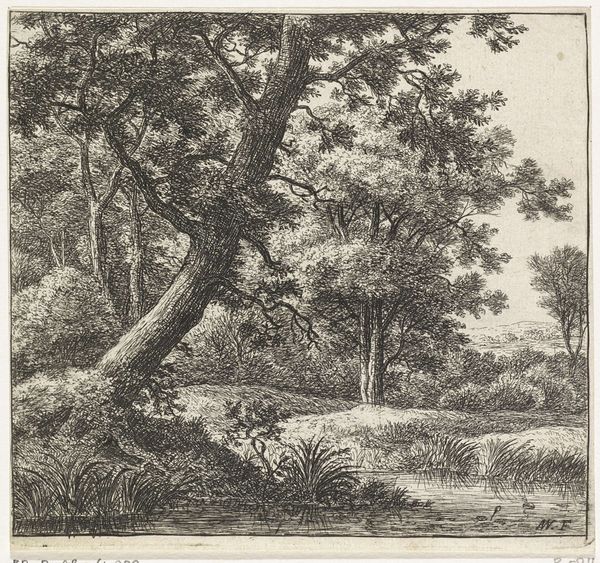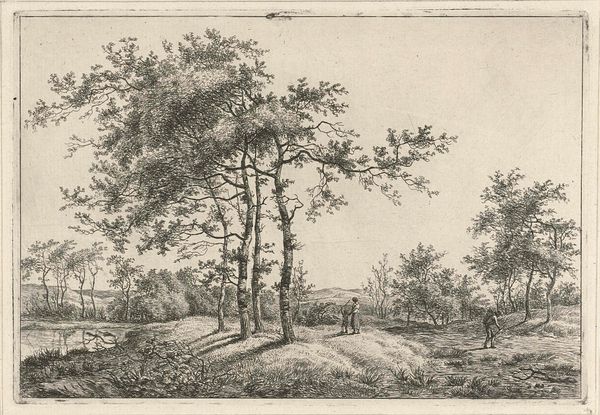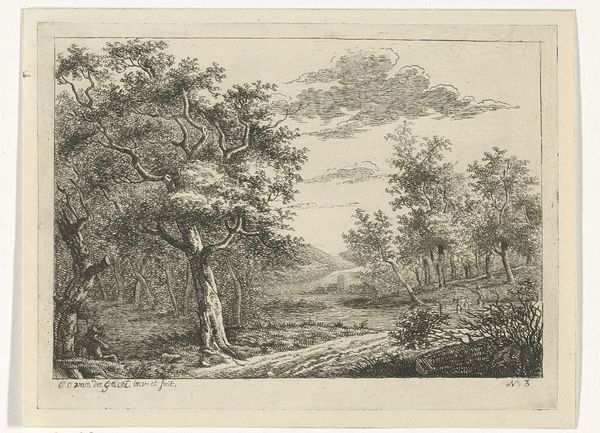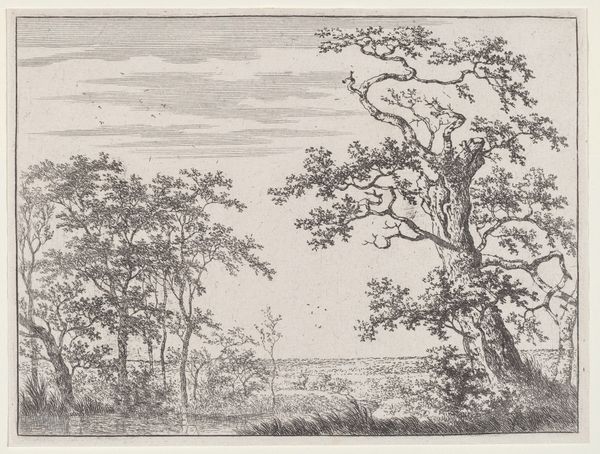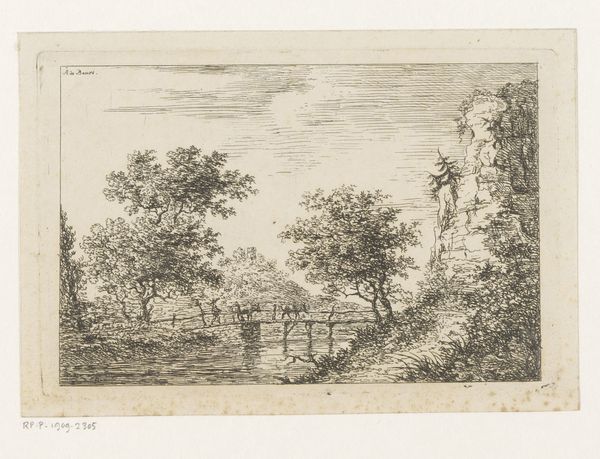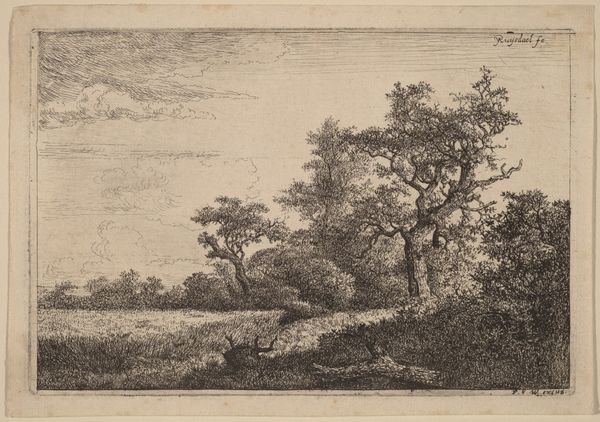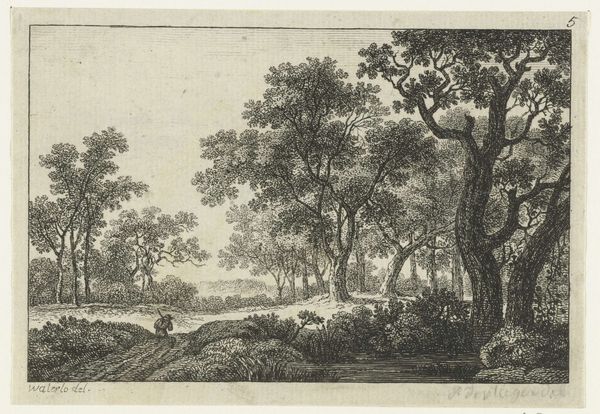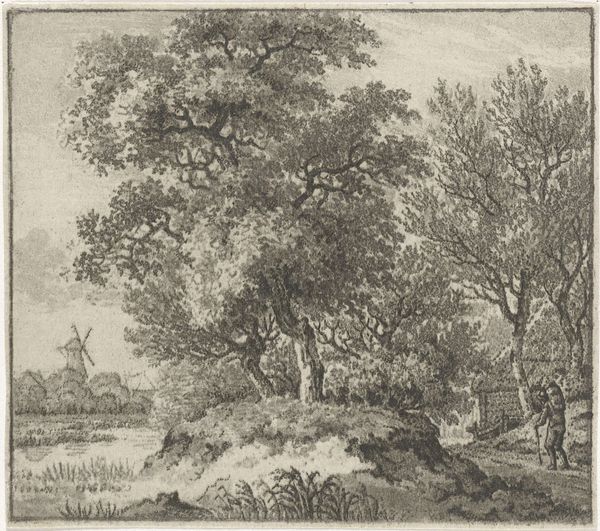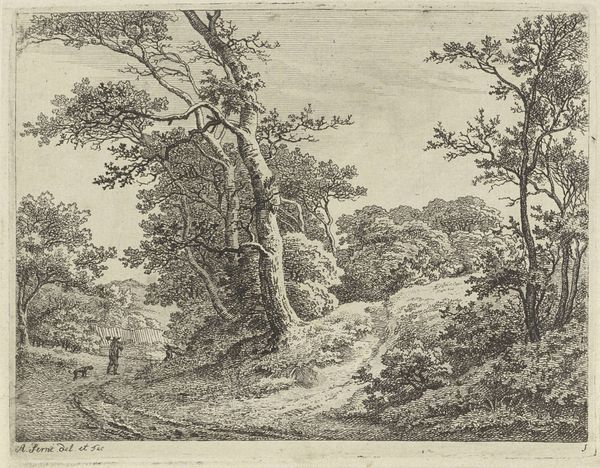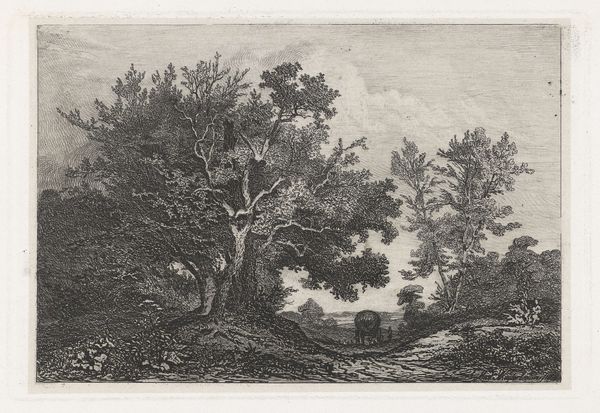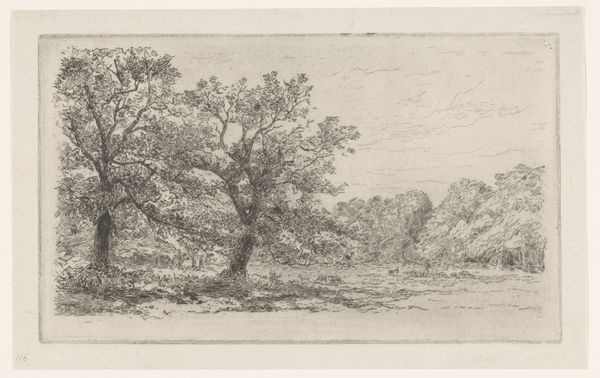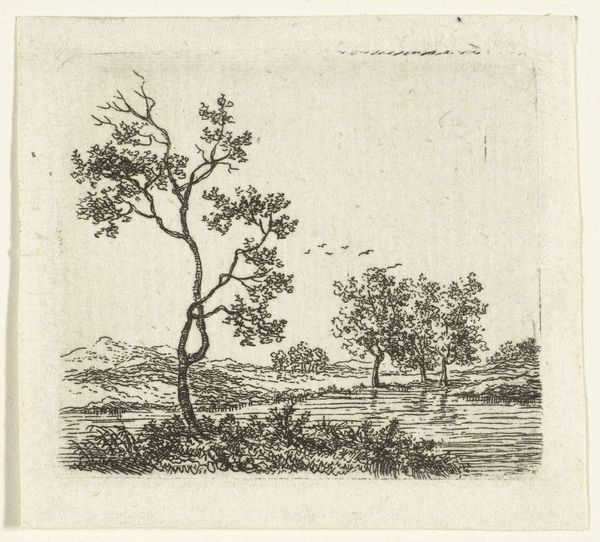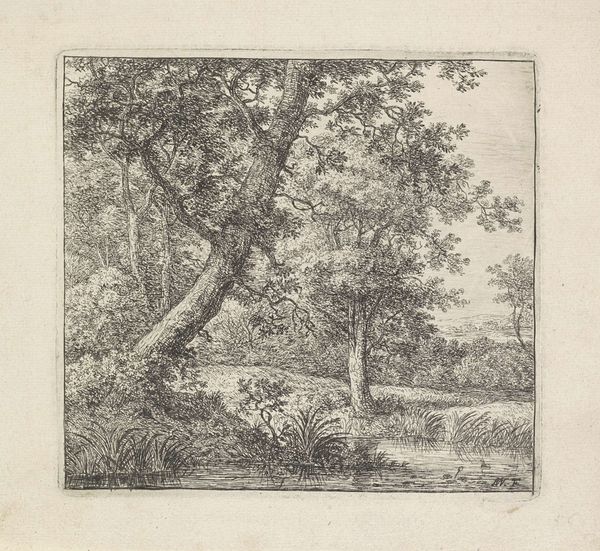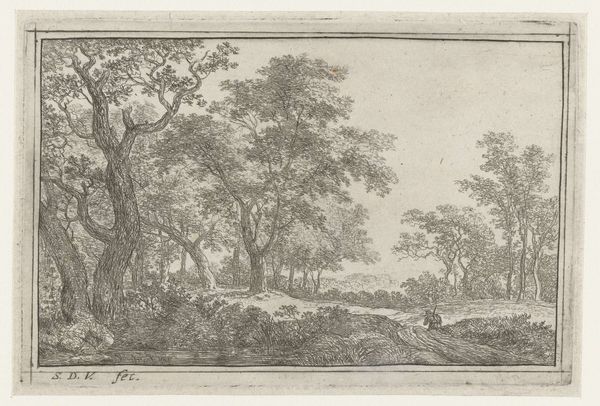
etching
#
dutch-golden-age
#
etching
#
landscape
#
etching
#
line
#
realism
Dimensions: height 146 mm, width 172 mm
Copyright: Rijks Museum: Open Domain
Editor: So this is Claes van Beresteyn’s "Landschap met korenveld," likely created between 1637 and 1684. It's an etching, and the fine lines create such a tranquil mood. I’m curious, what does this landscape suggest to you, viewed from a historical lens? Curator: Considering the socio-political climate of the Dutch Golden Age, such landscapes weren't just pretty pictures, you know. They actively constructed a sense of national identity. This image reflects the prosperity and cultivation of the Dutch countryside; control over the land equaled control over destiny. It suggests a specific, very cultivated version of “nature.” Do you think the “naturalness” of it is perhaps a construction? Editor: I hadn’t thought of it that way. It’s easy to just see the romanticism of the scene, but I suppose the very act of choosing to depict this particular view says something about the artist’s, and the society's, values. The emphasis on order and productivity maybe? Curator: Precisely. And look at how this print, this image, could be reproduced and distributed. It’s not just about one patron’s taste; it’s about circulating ideas, ideals even, throughout society. The availability of prints really changes how art functions. Does knowing that change your initial impression? Editor: It does. The tranquil mood remains, but now it’s layered with a sense of deliberate messaging. It’s like a PR campaign for the Dutch Republic. I'll never see landscape art the same way again. Curator: That's the beauty of considering art within its historical context!
Comments
No comments
Be the first to comment and join the conversation on the ultimate creative platform.
